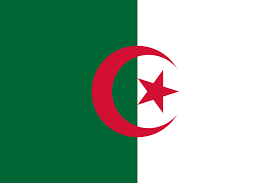
Introduction
Algeria, the largest country in Africa, is a nation steeped in rich history and diverse culture. As one of the key players in the North African region, understanding Algeria’s socio-political landscape, its cultural heritage, and current economic developments is essential. The country is witnessing ongoing changes that impact its relationship with neighbouring nations, its local populace, and its interactions with global powers.
Historical Context
Algeria’s history is marked by centuries of conflict and cultural integration, beginning with its indigenous Berber roots and subsequently influenced by Arab, Ottoman, and French colonisation. The struggle for independence, culminating in 1962, has shaped its national identity and continues to influence its policies today. Despite overcoming significant challenges in the past, Algeria remains a focal point in discussions about post-colonial recovery and growth.
Current Events and Socio-Economic Developments
As of 2023, Algeria is grappling with key issues, including economic diversification, youth unemployment, and political reforms. The Algerian government is working towards reducing the economy’s dependency on hydrocarbon exports, which currently account for over 90% of the nation’s revenue. Recent initiatives aim to promote sectors such as agriculture, renewable energy, and tourism.
Moreover, the citizens’ push for political reform remains evident, with protests surfacing over demands for increased transparency and accountability in governance. As a result, the government has pledged to enforce measures aimed at enhancing civil liberties and improving public services. Often seen as a bridge between Europe and Africa, Algeria is also focusing on building stronger ties within the African Union and fostering partnerships with European nations to enhance trade.
Conclusion
Algeria’s formidable history and its current transformation underscore its significance in the global arena. The nation stands at a crossroads, facing the challenges of modernisation while ensuring stability. For readers interested in North Africa, Algeria represents not just a country of vast deserts and archaeological wonders, but a dynamic society navigating the complexities of the modern world. Observers should keep an eye on Algeria’s progress, as its future will undoubtedly influence regional geopolitics and economic interactions.
You may also like

Understanding the Current Political Landscape in the UK

Discovering the Beauty and Culture of Norway

Exploring East Grinstead: History and Attractions
SEARCH
LAST NEWS
- Remembering Wendy Richard: The Promise to Co-Star Natalie Cassidy
- How Did Anglian Water Achieve an ‘Essentials’ Rating for Mental Health Accessibility?
- Shai Hope Leads West Indies in T20 World Cup Clash Against South Africa
- What We Know About Weston McKennie: Future at Juventus and Past at Leeds
- What We Know About the Upcoming Live Nation Antitrust Trial